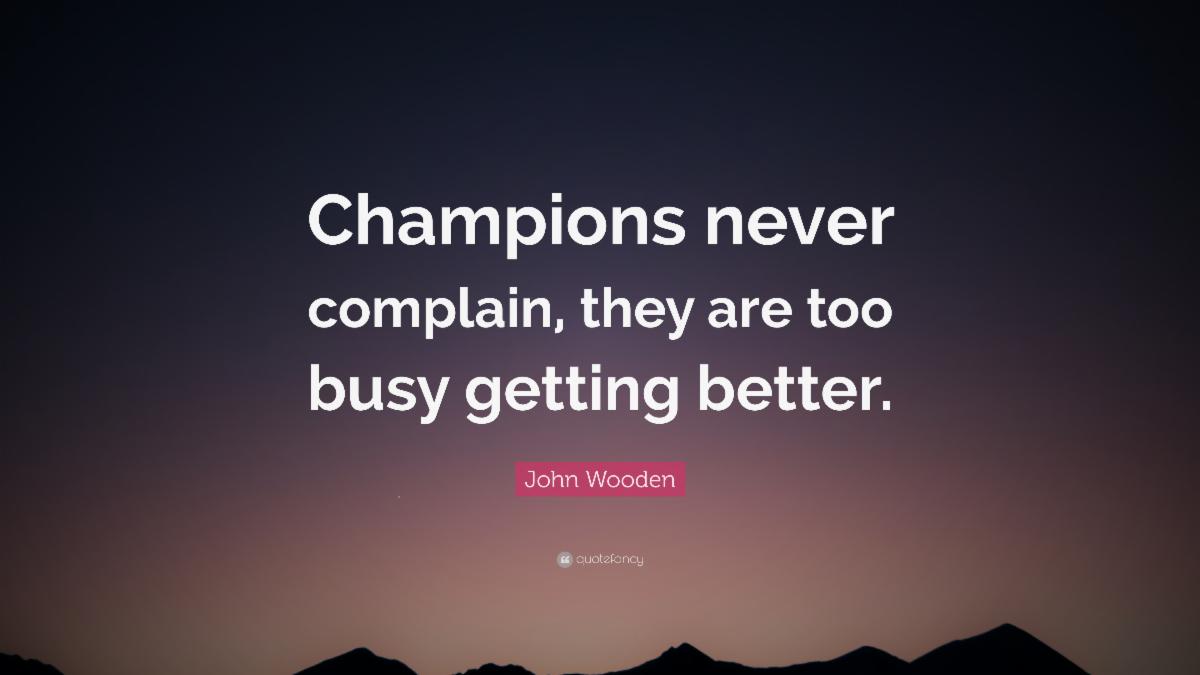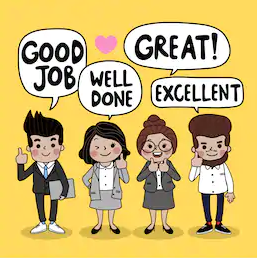For the last few weeks or so, I have been enjoying and learning from the videos a by Hazel Walker, who is a BNI Franchise Owner and Author. She has a YouTube Channel called '
Walker this Way,' Queen of all things BNI. She provides a wealth of information and knowledge and delivers in a poignant and humorous way.
In one of her videos, she asks the question, 'What is the value of your Chapter's Visitor Experience? Are you providing a $1000 Experience or a $300 Experience?' I highly recommend every Chapter Member, especially all of the Visitor Hosts view this video. I believe it will explain the importance of providing an outstanding Visitor Experience at every Chapter meeting. After all, if you want more referrals, you need more members, and to get more members, you need more visitors.
So let's go over some of the Best Practices for providing an Awesome Visitor Experience.
Prior to the meeting -
- Have members register Visitors prior to the meeting. Training members to register their visitors provides the Visitor Host Team with the information they need to prepare the pre-printed name tags. Some chapters also have a 'Welcome Visitors' section on their printed agenda and lists all the registered visitors.
- Make Contact with Visitors prior to the meeting. A best practice is to call all of the registered visitors. In some chapters the president does this. In others, a member of the Visitor Host Team calls the registered visitors. The purpose of the call is to give the visitor an idea of what to expect at the meeting. Make sure they have the directions to the location and ask them who they would like to meet at the meeting. By promising to introduce them to whom they would like to meet, perhaps a referral partner, it gives the visitor more incentive to show up. Also, follow up with an email or at least send an email with the pertinent information to the registered visitors.
Day of the meeting -
- Welcome the visitors. The Visitor Host Team should arrive early and have the Visitor sign in table set up at least 20 - 25 minutes prior to the start of the meeting, as visitors tend to arrive early.
- Have the Visitor Sign in sheet ready for the Visitors to attach their business card. Give them their pre-printed name badge and hand them off to one of the In Room Visitor Host.
- The In Room VH helps the Visitor find a place to sit. Goes over the agenda, etc. Introduces the visitor to the person they wanted to meet and/or a referral partner and gets the conversation started. The In Room VH then goes back and gets the next Visitor. There needs to be 2 or 3 In Room VH and all of the members need to understand this process and the importance of making the visitors feel welcome.
During the Meeting -
- Ensure the Visitor is sitting next to someone who can/will assist and answer questions during the meeting. That could be the person who invited them, the referral partner they wanted to meet, or one of the In Room VH.
- At the beginning of the meeting, the President makes it a point to welcome the visitors and introduce each one, stating who invited them, if they are a visitor or a sub, and explains to them they will have an opportunity later in the meeting to tell the group more about their business. An easy way to do this is to use the Visitor Sign In sheet with the visitors business cards stapled to it. If there is a name that may be difficult to pronounce, the VH should write the name phonetically so that the President will have a better chance of getting it right.
- After the members and subs have done their infomercial, the President can use the Visitor sign in sheet to call on the Visitors to do their infomercial. By calling on them, the President has more control in case there is a sub representing the same company or someone whose seat is already filled, the President can call them by name, thank them for coming and say something like, 'since you're representing the same company and have already given us information about your company, we'll go to the next person.'
- For the Contribution portion of the meeting (AKA 'I Have,' the President asks the visitors to also participate by stating one thing that they enjoyed most about the meeting. (Ensure this portion of the meeting is being timed for members as well as visitors. Most chapters allow 15 to 20 seconds.)
At the end of the Meeting -
- The Sec/Treasurer reads the Call to Action and announces that Visitor Orientation will be held momentarily.
- The President announces Visitor Orientation, thanks the Visitors for attending, and lets the Visitors know that this is the portion of the meeting when the visitors will have an opportunity to learn a little more about BNI and get their questions answered and then they will have an opportunity to come back and network.
- The person sitting with the visitor ensures that the visitor gets to the Visitor Orientation.
- The Visitor Orientation Team gives a brief overview of the benefits of becoming a member and provides applications to those who are interested in membership. This should take about 5 to 7 minutes.
After the Meeting - 'The Fortune is in the Follow Up'
- Following the meeting and within 24 to 48 hours, the Post VH calls each one of the visitors to thank them for attending and to ask if they have any questions. Dependent on the response of the visitor, the Post VH provides the information to the appropriate person, i.e. if the member wants to move forward an apply for membership, the Post VH could email them an application or direct them to the BNIATL website and instruct them on completing the application and how to pay. They would also notify the VP and Applications Specialist. If the person is interested, but the time and/or location is not conducive to their schedule, the Post VH would put them in touch with the Director for the chapter who can assist in finding a more suitable location. Also, for those who do show interest, let the visitors know that they may attend a second time.
- An email should also be sent as a follow up with all the pertinent information to reiterate the conversation and also to those the VH could not reach.
- The VH provides a report back to the President, the person who invited the visitor, the Quality Assurance Specialist (to follow up if appropriate), and to the Director Consultant (if the visitor wants to visit another chapter).
- The Visitor information should be accepted and/or entered into BNIConnect as part of the Palms report within 24 to 48 hours of the meeting. This triggers the 'Engagement System' so that the visitor can receive information directly from BNI. This includes a email survey as to what they thought about the BNI meeting they attended.
For Visitor Days and/or Stack Days reports can be run for past visitors and invite those in the chapter's targeted positions to these meetings. Sometimes this will spark more interest and persuade them to submit an application.
I hope this information is helpful. Here is a four minute video from a chapter in North Scotland that shows an exceptional visitor experience -
Click Here to watch.
Here are some additional resources:
I hope you found this information helpful. If you have questions and/or need help, reach out to your Director Consultant, Area Director, or Senior Director.
In appreciation,
Annette
BNI Area Director




















